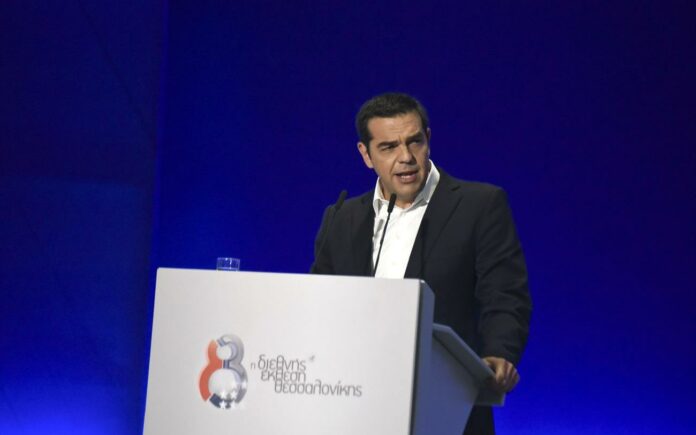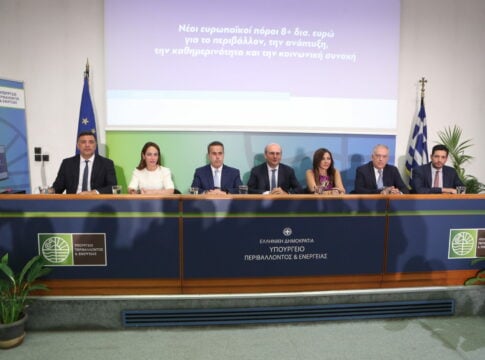Greek Prime Minister Alexis Tsipras repeatedly pointed to a “vision” for Greece the future in the post-bailout period, speaking on Saturday evening from Thessaloniki on the occasion of an annual state-of-the-economy given by Greek premiers at the opening of a trade fair in the city.
Tsipras, whose government is decidedly trailing in opinion polls and whose seen his own personal voter approval ratings sag, first defended his decision in 2015 to acquiesce to creditors’ demands, the precursor of the third memorandum in July 2015. “This is the first time that I can say that in 2015 we made difficult decisions and we were justified.”
In a bid to answer one of the more nagging questions hovering over his “strange bedfellows” coalition government, namely, if another round of agreed-to pensions cuts will be implemented as of Jan. 1, 2019, Tsipras first honed in on the IMF and its predictions regarding the Greek economy, but avoided pledging any unilateral action, such as avoiding the cuts. He said fiscal targets are being met, and therefore the looming social security reduction is unnecessary, something he added will be made clear to creditors – i.e. European institutional creditors.
Speaking at the same venue where he once, as the main opposition leader, detailed an anti-austerity, anti-bailout and spending-laden, the “Thessaloniki program”, on Saturday he referred to another plan, which he called “Fair Growth”.
In terms of details, he said his government aims to lower contributions by self-employed professionals and professional farmers, as well as to reinstate stricter labor market regulations.
In echoing past Greek prime ministers who spoke from the same venue over past decades, he promised an improved public administration in “red-tape”-plagued Greece as well as a speedier justice system, as well as simplification of the processes to establish and license new businesses, another leitmotif heard from Thessaloniki for decades.
Tsipras even referred to an emphasis on finally creating a unified and functional cadastre (land registry) in Greece, one of the few, if not the only, country in the advanced world without such an entity.
Tsipras formally announced a return of (obligatory) collective bargaining agreements in the country, and the principle of extending such agreements when the benefit leans towards wage-earners. The measure had been repeatedly cited as set for reinstatement by a bevy of ministers in the previous period leading up to his address.
He also confirmed that the government wants to raise the minimum monthly wage scale, as of 2019, while including a caveat: “following the conclusion of consultations with all involved parties”.
In a bid to reverse what’s been called Greece’s version of “brain drain”, Tsipras promised subsidized job spots for 10,000 scientists and high-skilled young professionals, while even pointing to some of the sectors the state will subsidize: manufacturing, agri-business and “new technologies”. At the same time, he promised 5,500 new positions in Greece’s public sector, and incentives, such as lower income taxes and social security contributions, for young professionals that repatriate – again, as of 2019, an election year.














